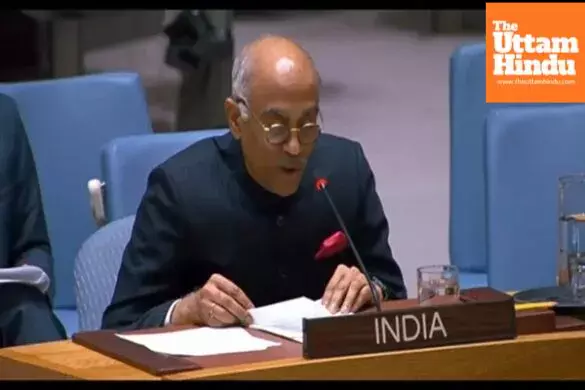India slams Pakistan at UN, says Jammu and Kashmir is integral part of the nation

New Delhi (The Uttam Hindu): India strongly raised the issue of Pakistan Occupied Kashmir at the United Nations. India's Permanent Representative to the United Nations, Parvathaneni Harish, said that Pakistan should stop human rights violations in the illegally occupied areas, especially in the Jammu and Kashmir region. Human rights violations have increased in Pakistan Occupied Kashmir in recent times. Recently, there were large-scale protests in PoK for basic demands, which were brutally suppressed by the Pakistani army, resulting in the loss of many lives.
'Stop human rights violations in PoK, Jammu and Kashmir is an integral part of us', India slams Pakistan at the UN: During the open debate on the occasion of 80th UN Day in the United Nations Security Council, Indian Ambassador P. Harish said that Pakistan should immediately stop the ongoing human rights violations in the illegally occupied areas. He said that the people there are revolting against the occupation, exploitation, brutality and illegal exploitation of natural resources by the Pakistani army. Harish also clarified that Jammu and Kashmir has always been and will always remain an integral part of India. He said that the people of Jammu and Kashmir exercise their fundamental rights under the democratic tradition of India, which is a strange thing for Pakistan.
P. Harish also questioned the legitimacy, credibility, and utility of the United Nations in contemporary times. He stated that the United Nations was established after World War II as a hope for international peace and security, but is now failing to adapt to current needs. He called for a more democratic and participatory global decision-making framework, taking into account the needs of the Global South. Harish stated that international cooperation is now viewed as a mere formality or social service, limiting progress. Citizens of the Global South are losing access to the resources and technology needed to meet their development aspirations. He stated that not viewing development and prosperity from a global perspective is neither sustainable nor ethically sound.
